From using bio-fuels to revamping in-flight food and drinks services, eschewing mass-produced chicken/eggs in favour of local, farm-raised options to offering eco-friendly toys for children, airlines try out inventive measures to encourage carbon-neutral practices.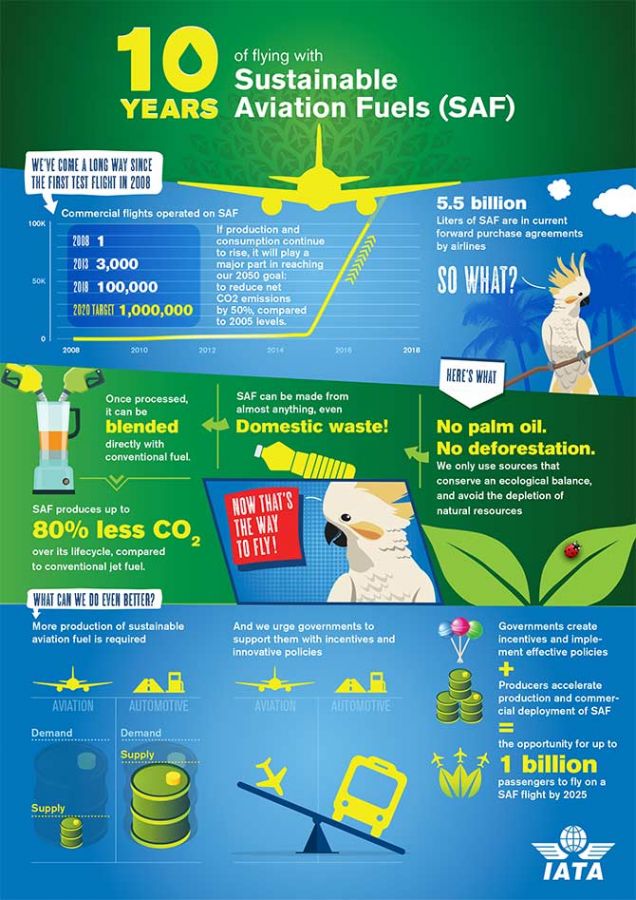
The staggering environmental impact of air travel is driving many airline companies to whittle down their carbon footprint and make flying more sustainable.
Indeed, the need for such measures has never been more pressing.
According to a recent global study, recreational air travel alone is responsible for over 10 per cent of the climate change caused by human activity.
The airline industry currently produces about 3 per cent of the world’s emissions. The number is likely to surge by 2020, says World Travel Organization, when the number of tourists across the world skyrockets to 1.6 billion.
With green travel increasingly finding resonance among flyers and corporates, airlines, too, are factoring in eco-friendly initiatives into their business strategies.
From using bio-fuels to revamping in-flight food and drinks services, eschewing mass-produced chicken/eggs in favour of local, farm-raised options to offering eco-friendly toys for children, inventive measures are underway to encourage carbon-neutral practices. 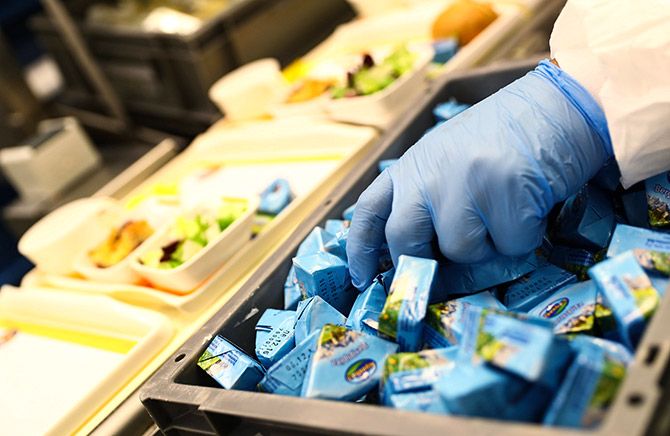
In November 2016, Alaska Airlines flew the world’s first commercial flight powered in part by forest residuals bio fuels. Interestingly, this new bio fuel was manufactured from sustainable parts of trees (harvested by indigenous communities) that are left after environmentally-friendly logging occurs.
Similarly, KLM is testing algae-based fuel and another version that uses partially recycled cooking oil, while Air New Zealand and Japan Airlines have both conducted tests with fuel extracted from jatropha flowers.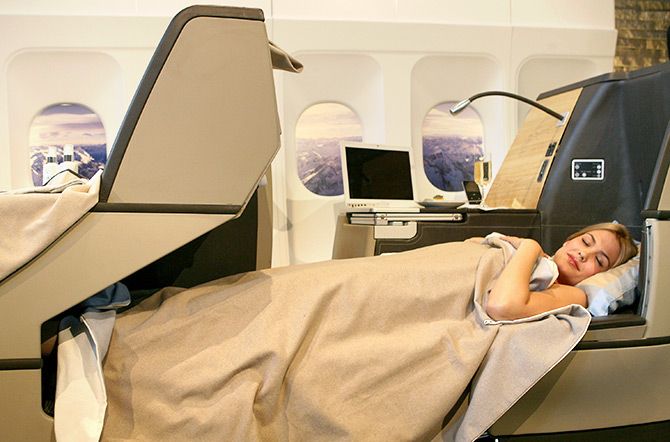
Change is literally in the air onboard, too. Some airlines have swapped bulky trolleys with more compact and light-weight ones to serve in-flight meals. Even blankets and tableware are getting a makeover to reduce the overall weight and thus save fuel.
New slim line seats are being installed on some planes to not only provide travellers with more leg room, but also to reduce load.
But perhaps the most striking changes have occurred in meals served on board. Virgin Atlantic partners with the Sustainable Restaurant Association to ensure that its 5.5 million meals served on board each year meet the key principles of humanely-farmed meat and dairy, sustainably-sourced fish and seafood, and reduced deforestation-risk food.
The airline has also struck off from its menu food that contributes to deforestation such as soy, palm oil and beef.
All menus on the airline's Caribbean routes now use rapeseed oil, which saves 100 tonnes of palm oil per year.
According to Craig Kreeger, CEO of Virgin Atlantic, the airline is also "investing in new, more-efficient aircraft, regularly using a range of fuel saving initiatives such as single engine taxiing, real-time weather technology that help pilots make smarter route choices, as well as rigorous weight management of all products on the aircraft."
The sponges from headsets are being recycled to surface an equestrian centre, while disused plastics on board are being repurposed into benches. 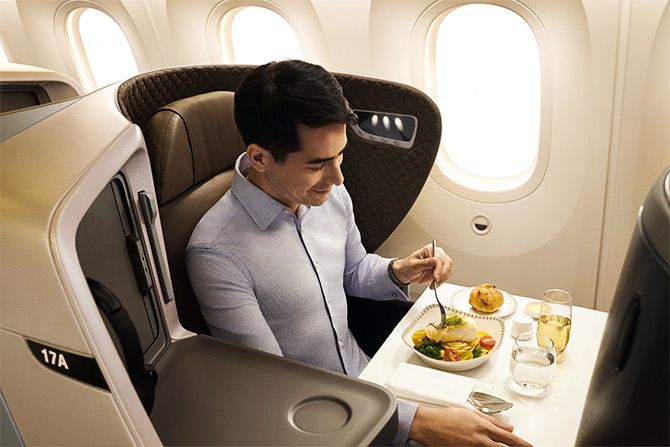
Vistara is similarly adopting measures to minimise the use of plastics in its in-flight meal and is the only carrier in India to serve oxo-biodegradable cutlery.
“We have further pledged to reduce consumption of plastic by over 50 per cent this year by adopting innovative, environment-friendly methods.
“We’re replacing plastic casseroles with aluminium dishes, plastic straws and stirrers with paper/wooden ones, and disposable bowls in economy class with reusable ones. We’re actively working to reduce dependence on plastic bottles,” said a Vistara spokesperson. 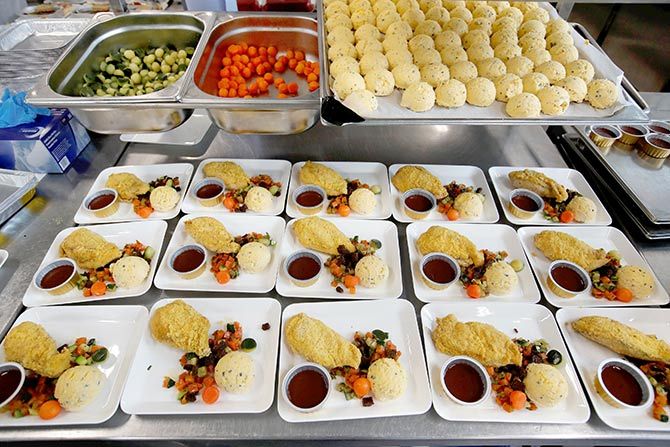
Singapore Airlines’ new initiative From Farm to Plane is similarly targeted to promote environmental sustainability and buttress local farmers’ communities, said a company spokesperson.
The airline is also increasingly using more sustainable and meatless ingredients, as well as local produce, in its in-flight meals.












